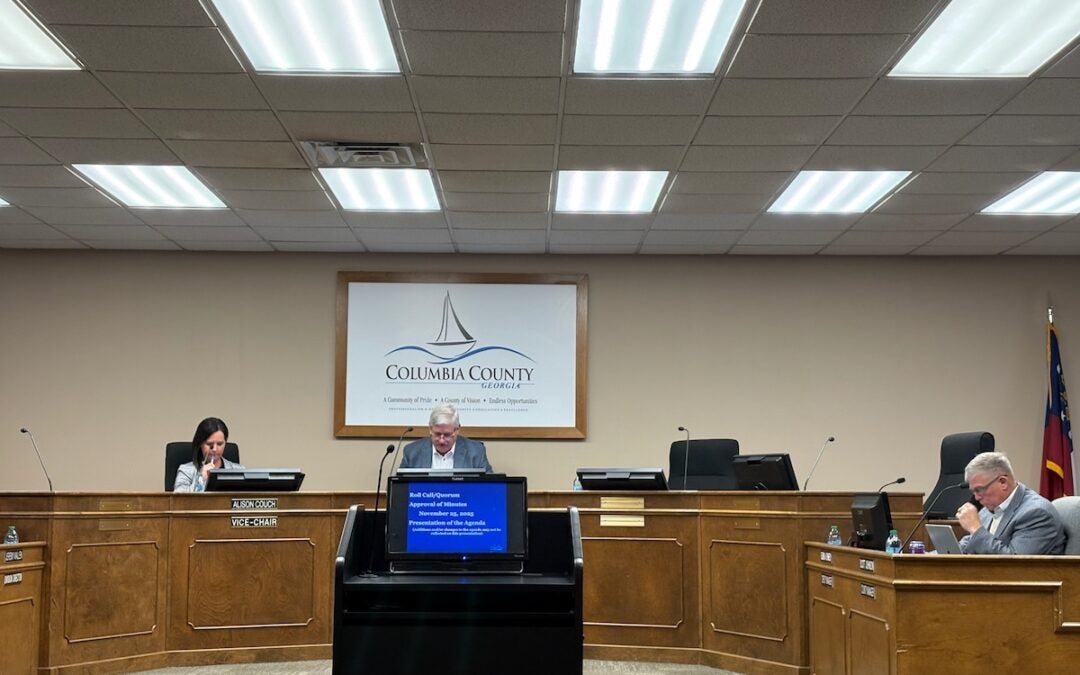Evictions in Columbia and Richmond counties have nearly doubled since the eviction moratorium ended in Georgia in late August.
However, according to the director of development for the Salvation Army, Derek Dugan, the rise in evictions began before the COVID-19 pandemic.
“The numbers seem high, and they are, but the moratorium created a bottleneck, and now, we are seeing a surge in the number of cases,” Dugan said.
Bethany Trapp, program coordinator at the Marion Resource & Referral Center which is operated by CSRA Economic Opportunity Authority (EOA), says the rise in evictions is stretching resources thin for all of the local aid agencies.
“The issue that a lot of families are facing right now with getting assistance is, the system is flooded, not just with the United Way, but with everybody,” Trapp said.
[adrotate banner=”51″]
According to Trapp, the United Way of the CSRA recently received $6 million in emergency funding from the city of Augusta that originally came from the Federal Treasury, but because of the backlog, it still takes weeks for needy families to get assistance.
The chair of the Augusta Task Force and Resource Development Director for CSRA Economic Opportunity Authority, Lynda Barrs says the focus across the board is homeless prevention and that representatives of the city’s Housing and Community Development Department are attending eviction hearings to attempt to mediate between the parties and prevent an eviction.
“Before the eviction occurs, they are working with the landlords to resolve the issue and keep that family housed because if you can keep that family housed you have saved the community a lot of money, you have saved the family a lot of stress and trouble and the children are not uprooted,” Barrs said.
Many times when an eviction does occur, according to Barrs, families in Richmond County are forced to move into low-end motels because of the lack of affordable housing. Also, a legal eviction is documented on a person’s credit profile that, in many cases, makes securing another lease difficult if not impossible.
“When they are housed in these hotels and all this money is going out, everything they can put together is going to keep them ‘housed,’ and they don’t have access to money for first month’s rent and deposits, so they are caught in this vicious cycle,” Barrs said.
According to Barrs, the motels do not have to follow the legal eviction process and can simply lock people out of their rooms if they are even a day late paying rent.
Trapp and Barrs both say many times, families are unaware help is out there until it is almost too late. The federal moratorium only placed evictions on hold, and some families have found themselves thousands of dollars behind in rent with no way to catch up.
[adrotate banner=”15″]
The EOA has an energy assistance program that eases the cost of electricity, so people are in a better position to pay their rent. The Salvation Army also has a utilities support program as well as rental assistance.
While almost all of the local assistance organizations receive federal and state funding, budgets for these agencies are stressed even in normal times and with homelessness on the rise, budgets are now stressed to the max.
Dugan says agencies are all working together, and they all hope that the community will feel the holiday spirit and either donate money or volunteer their time.
“No one in Augusta has to be homeless; we have the resources to help people. No one should be sleeping on the streets,” Dugan said.
Anyone wishing to donate or volunteer can go to csraeoa.org, salvationarmyaugusta.org or uwcsra.org.
Scott Hudson is the Senior Reporter for The Augusta Press. Reach him at scott@theaugustapress.com











